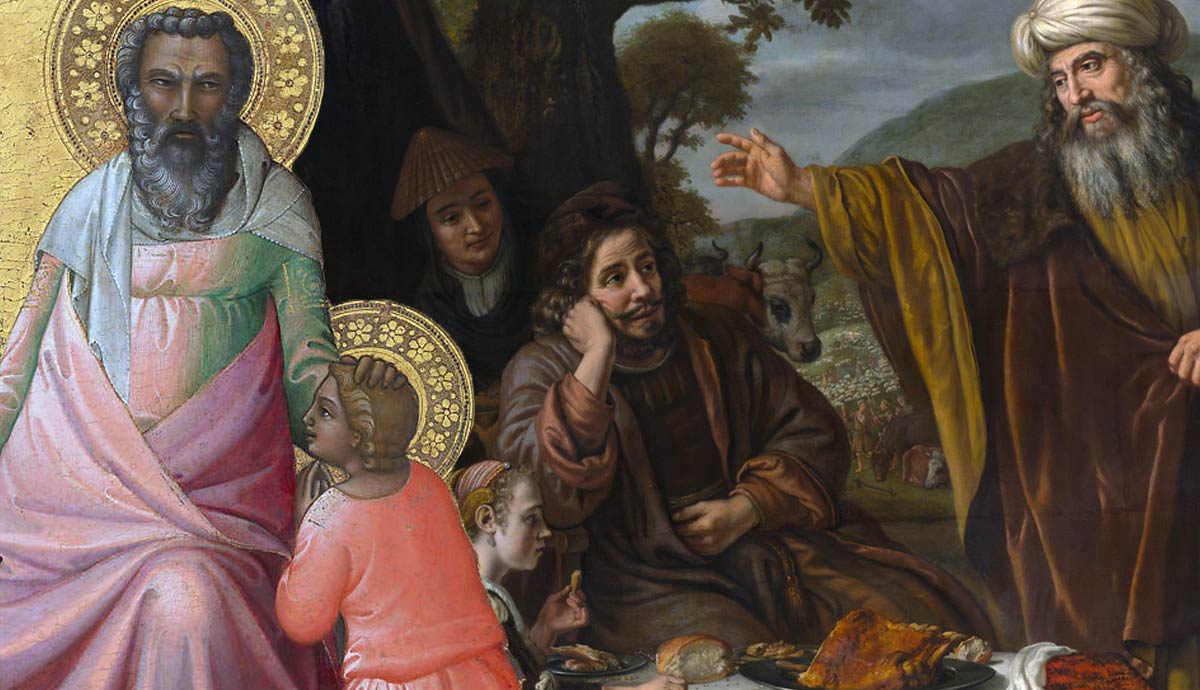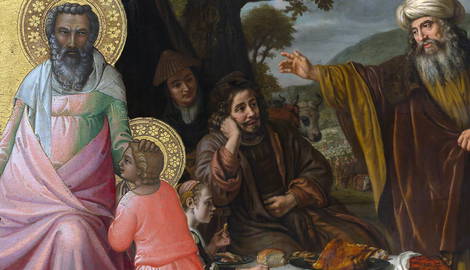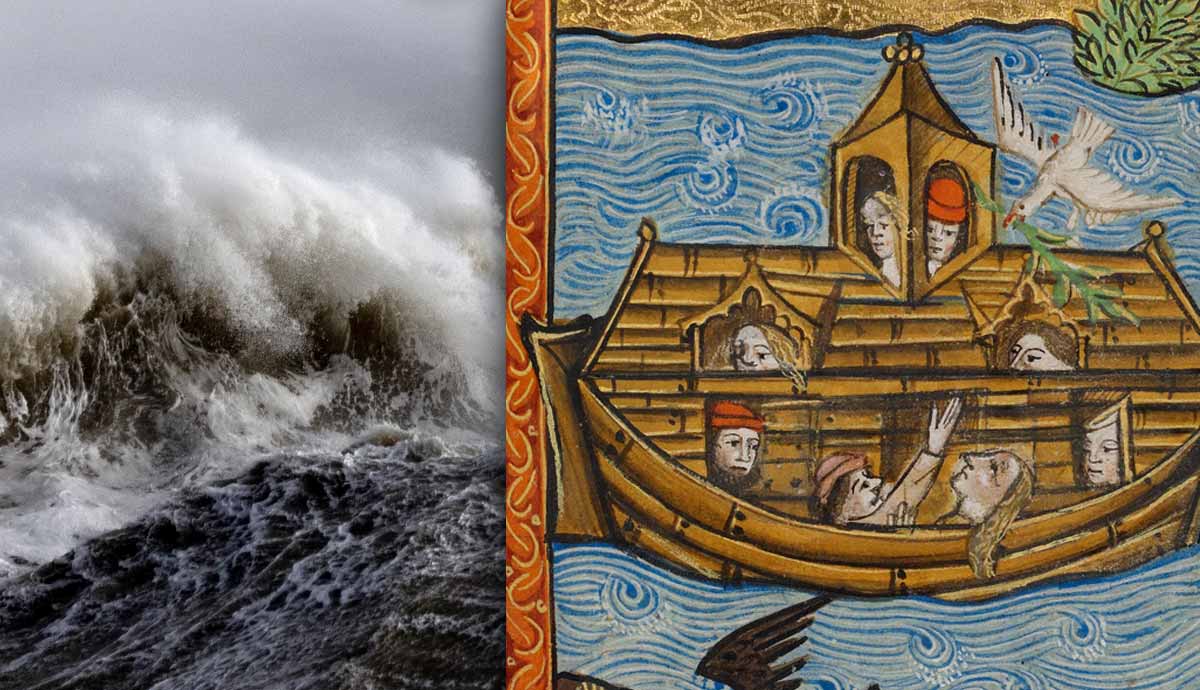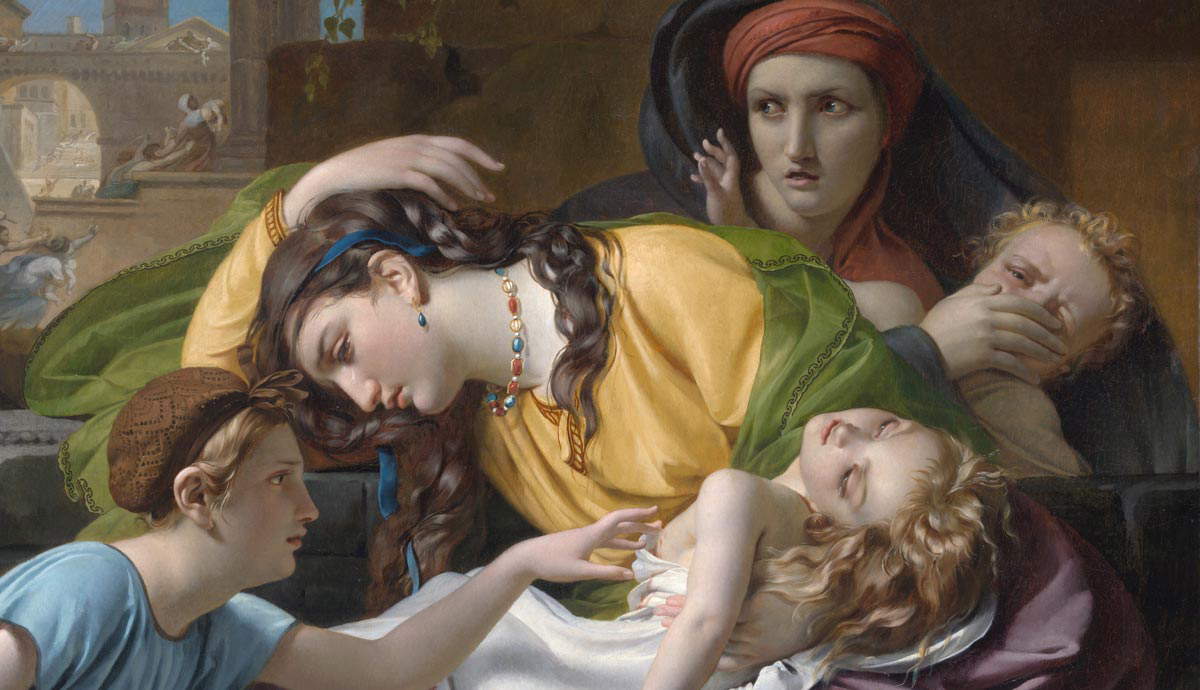
Certain figures in the story of scripture loom large. You might have wondered: Who is Abraham in the Bible? This man was a significant character. He is the chosen receiver of God’s promise to make the Israelites his very own people, set apart from the other nations of the Earth. We read about Abraham’s life in the Book of Genesis in the Bible. This article will explore how Abraham and the promise he received from God fit into the Bible’s bigger story.
What Is the Big Story of the Bible?

In order to understand who Abraham is in the Bible, we need to see him in relation to the bigger story.
The big story of the Bible is about a Creator God who made humankind in his image, to live in close communion with them. But the people turned their backs on their maker, choosing sin and selfish ambition over his will for their lives. In response to their choice, the people were banned from God’s presence, and suffering entered the picture.
For ten generations from Adam to Noah, people continued in their evil ways to the point where God decided to send a Great Flood. But Noah found favor in the eyes of God, and he was saved. Fast forward another ten generations, and we learn about someone named Abram (later renamed to Abraham). God made promises to Abraham that he was going to multiply his people, the Israelites, and give them the land of Canaan.
Five generations after Abraham, Moses was born. Moses led God’s people out of slavery and into the Promised Land, a process during which God’s promises to Abraham were fulfilled. In what follows, the Israelites learned how to live as God’s people awaiting another promise: The Messiah (Savior). About 28 generations later, Jesus Christ was born.
The big story of the Bible that repeats again and again is that God keeps making promises that he will make a way to reunite with humankind, despite their continuous pattern of turning away from him. This was also the message that Jesus shared on Earth, and can be seen even in the Genesis promises God made to Abraham.
Who Received God’s Promise?

According to the Bible, making promises and keeping them is part of God’s character. It is evident from the very start of the story that God makes promises to his people. However, there’s an important note to be made here: Who exactly are the people of God, the recipients of these promises?
There are two views in the Old Testament: Firstly, we have particularism. God chose the Israelites for himself, particularly. Only the Jews are God’s people, and the rest of the world (the Gentiles) are on the outskirts. This view is seen in passages as follows:
Psalm 105:5-6 “Remember the wonders he has done, his miracles, and the judgments he pronounced, you his servants, the descendants of Abraham, his chosen ones, the children of Jacob.”
2 Corinthians 11:22 “Are they Hebrews? So am I. Are they Israelites? So am I. Are they Abraham’s descendants? So am I.”
But there is another view prevalent in scripture that is more inclusive. This view states that God cares about ALL people. This view is seen in the passages below:
Galatians 3:14 “…the blessing given to Abraham might come to the Gentiles through Christ Jesus, so that by faith we might receive the promise of the Spirit.”
Revelation 7:9 “After this I looked, and there before me was a great multitude that no one could count, from every nation, tribe, people and language, standing before the throne and before the Lamb.”
The New Testament highlights the latter through the life of Jesus and the salvation of Gentiles who choose to follow God. While the Abrahamic promises are literally applied to the Israelites alone, there are other promises that God made in scripture that have not yet been realized, like his predicted coming kingdom and reign.
Who Is Abraham in the Bible?

As briefly mentioned, Abraham was named Abram at first. This fascinating detail reveals something unanticipated: Abraham was originally a Gentile when he was called. So, he was the chosen ancestor for the Jews.
Abram lived 20 generations after Adam. We first read about him in Genesis chapter 11. Abram was called out of nothingness into purpose by God, and he obeyed. Abram ended up in Egypt for a while, which ended with the Pharaoh, plagues and the command to “Go!” A strange detail, foreshadowing what would happen when Moses frees the Israelites from Egypt five generations later.
Abram then went through some altercations and tests of character with regard to family and land, events that shaped him into a person living near God. James 2 verse 23 calls Abraham God’s friend.
After these events, he received his second promise from God: Abram and his wife Sarai were childless before he encountered God, but here God promised to give Abram many descendants. Sarai, misunderstanding God’s promise and aware of her own infertility, pushed her slave, named Hagar, on Abram. The son born of Hagar was Ishmael, a major prophet in the Islamic tradition.
Abram received a third promise from God, and both his name and the name of his wife were changed (Abram=Abraham and Sarai=Sarah). Then the couple was visited by three angels disguised as humans. Abraham received a warning from God about the destruction of the evil in Sodom and Gomorrah, and in an act similar to Noah and the Great Flood, they were saved.
After a long wait, Sarah became pregnant and bore a son, Isaac. Abraham’s faith was tested further when God asked him to sacrifice the boy. Abraham trusted God, and he provided an alternative sacrifice. Abraham’s life was one of remarkable faith.
What Promise Did God Make to Abraham?

Contrary to popular belief, God did not meet Abraham once to give him one promise. The Bible accounts of three major moments where Abraham received God’s promises, and multiple other encounters with the divine.
First, Abram receives God’s promises (Genesis 12) that his people will be made into a great nation with God’s favor, who will be a blessing to others, and live in the land of Canaan.
“I will make you into a great nation, and I will bless you; I will make your name great, and you will be a blessing. I will bless those who bless you, and whoever curses you I will curse; and all peoples on earth will be blessed through you” (vv. 1-3).
Later, Abram receives a promise that despite being childless, his offspring will outnumber the stars (Genesis 15).
“[The Lord] took him outside and said, ‘Look up at the sky and count the stars—if indeed you can count them.’ Then he said to him, ‘So shall your offspring be.’” (v. 5)

Abram’s third promise from God was that he would live in God’s presence and be blameless (Genesis 17), which also included circumcision.
“I am God Almighty; walk before me faithfully and be blameless. Then I will make my covenant between me and you and will greatly increase your numbers. You will be the father of many nations. No longer will you be called Abram; your name will be Abraham, for I have made you a father of many nations. I will make you very fruitful; I will make nations of you, and kings will come from you. I will establish my covenant as an everlasting covenant between me and you and your descendants after you for the generations to come, to be your God and the God of your descendants after you” (vv. 1-2, 4-7).
So we see that some of what God promised Abraham was deeply personal, but it was also about more than one individual.
How Is Abraham Depicted in the Rest of the Bible?

A central biblical figure, such as Abraham, is not mentioned just once in the Bible. Many other Biblical authors refer to or describe Abraham in their books, songs, and letters.
The New Testament epistle 1 Peter encourages women to submit to their husbands in the same way that Sarah submitted to Abraham (1 Peter 3:6).
Abraham is most often remembered for his bold act of faith in putting his son, Isaac, on the altar. James 2 says it this way: “Was not our father Abraham considered righteous for what he did when he offered his son Isaac on the altar? You see that his faith and his actions were working together, and his faith was made complete by what he did” (vv. 21-22).
Hebrews 11, which is known as the “Hall of Fame of Faith,” mentions Abraham more than anyone else. Abraham came to be seen as a sort of hero, affectionately called the “Father of Faith,” which led to the name “Father Abraham.” Galatians 3:7 “Those who have faith are children of Abraham.”
This name also has to do with the fact that Abraham is seen as the father of the Israelites before they became as numerous as the stars. He is the founding patriarch of that nation, according to their literature and traditions.
God’s promises to Abraham and his faith-filled reaction to them changed the trajectory of the Israelite people and their God for the rest of history.










